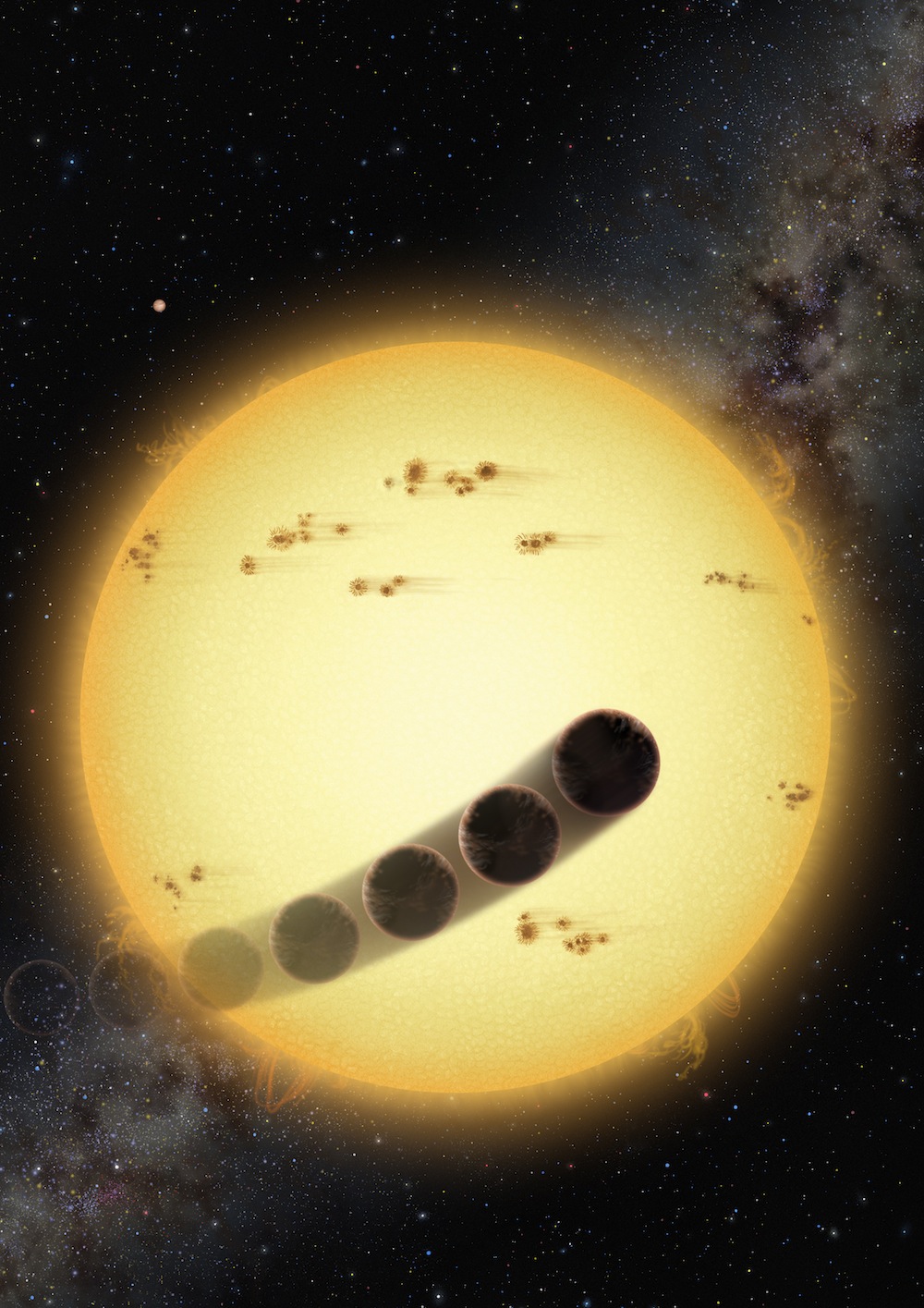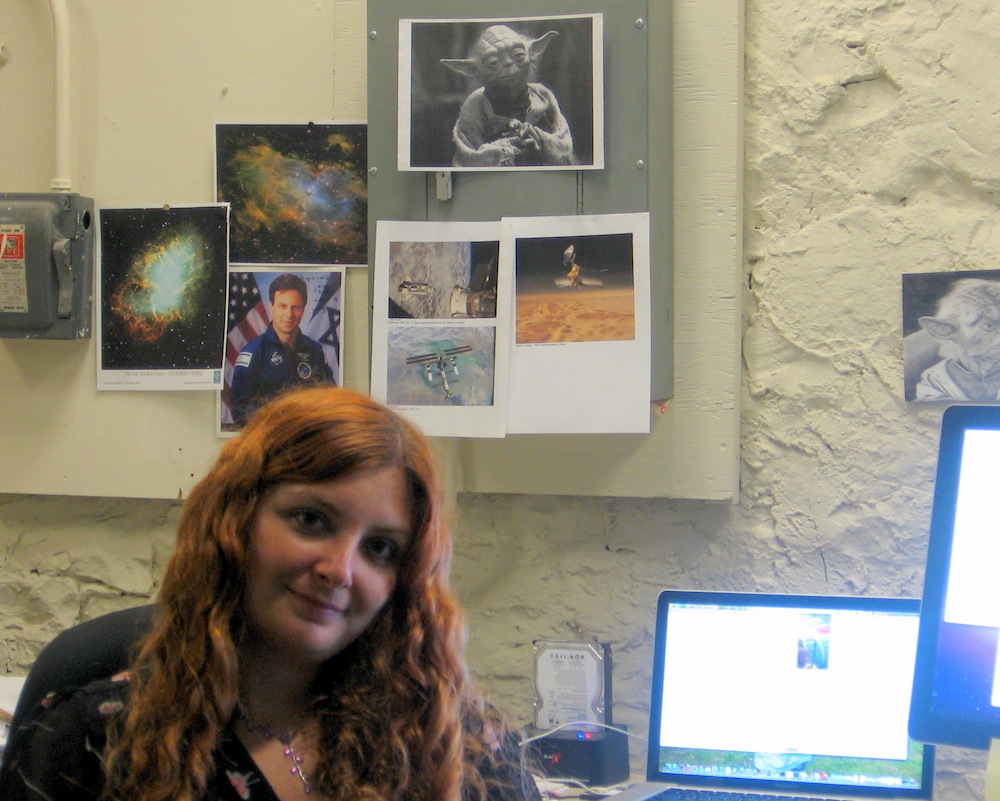Astrophysicist Unfolds Mysteries of First Galaxies

Get the world’s most fascinating discoveries delivered straight to your inbox.
You are now subscribed
Your newsletter sign-up was successful
Want to add more newsletters?
Join the club
Get full access to premium articles, exclusive features and a growing list of member rewards.
This ScienceLives article was provided to LiveScience in partnership with the National Science Foundation.
Smadar Naoz is an IAU Gruber fellow postdoc at the Northwestern University, CIERA. This fall she is at Harvard University as an ITC fellow. Naoz is a theoretical astrophysicist, and her main research subject is the study of the formation and properties of the first generations of galaxies. Although much about the first and last chapters of the cosmic story have been uncovered, scientists' understanding of the middle part of the cosmic story remains incomplete. Basic questions regarding the transformation of the uniform early gas into the galaxies we see today, and what were the different properties of those objects, are still open. Naoz seeks to uncover the answers to those questions.
Naoz also studies the different dynamical processes that take place in extrasolar systems and in our solar system. The search for extrasolar planets has led to the surprising discovery of many Jupiter-like planets in very close proximity to their host star, the so-called "hot Jupiters". Even more surprisingly, some of the hot Jupiters have orbits that are elongated or highly inclined with respect to the equator of the star, and some are even orbiting counter to the star's spin direction. In our own solar system, all of the planets are roughly in the same plane and orbiting the sun in the same direction as the sun's spin. Consequently, observations of those retrograde hot Jupiters pose a unique challenge to all planet=formation models, and in particular, how the planets get so close to the star in such orbits. For more information about the research, view the National Science Foundation press release. To learn more about Naoz, read her responses to the 10 ScienceLives questions below.
Name: Smadar Naoz Age: 33 Institution: Northwestern University Field of Study: Cosmology and the first generation of galaxies.
What inspired you to choose this field of study? My passion for science and astrophysics started at the age of five, when my mother used to watch Star Trek (the original series) with my younger sister and me. I grew up in Israel, and we had an old black and white television. This is one of the sweetest childhood memories of a family time, with my mother translating the show for us. I dreamt of being an astronaut — however as time went by, I realized that I could never go to space, and therefore studying it seemed to be the best way to fulfill my dream.
What is the best piece of advice you ever received?
I can think of three pieces of advice. The first was before I started my undergrad studies and I couldn't decide if I wanted to major in physics or mathematics. Since I did not study physics in high school I wasn't sure if I could manage it. I spoke with the counselor over the phone and his advice was "follow your heart," which I did. The second and third pieces of advice were not given to me per-se, but I still use them on an everyday basis. The second piece of advice is from Yoda, who says: "Do or do not ... there is no try." The third piece of advice was said by President Calvin Coolidge: "... Persistence and determination alone are omnipotent. The slogan 'press on' has solved and always will solve the problems of the human race."
Get the world’s most fascinating discoveries delivered straight to your inbox.
What was your first scientific experiment as a child? Experimenting with Archimedes Laws, in the tub of course.
What is your favorite thing about being a researcher? Feeling as if I'm fulfilling my dream. I love that my research engulfs my life and fills my thoughts and dreams — it is always with me, no matter where I am or what I do.
What is the most important characteristic a researcher must demonstrate in order to be an effective researcher? I think that there has to be a combination of characteristics and not a single one. It probably changes from person to person. I think that those characteristics should include curiosity, imagination, perseverance and the courage to ask questions.
What are the societal benefits of your research? This is a somewhat difficult question to answer for a theoretical astrophysicist, since the benefits are not easily quantified and straightforward, for example, as an answer like "having a more efficient means of energy". However, I think that society benefits from every pursuit of knowledge even if the immediate profits are not apparent. I think that some of the basic questions that human beings have been asking themselves since the dawn of history are: "What is this world we are living in, what is it made of,what is the history of the universe,are we alone in the universe," and more ... I think that we are trying to answer those questions.
Who has had the most influence on your thinking as a researcher? The people who have the most influence on the way I think are people who think differently than me. Through them, I can learn new ways of looking at problems. Specifically, those people are my husband (Moshe Naoz), my mentors (Nir Shaviv, Rennan Barkana, Fred Rasio and Vicky Kalogera) and colleagues.
What about your field or being a researcher do you think would surprise people the most? The possibility to observe so far back in the history of the universe is very amazing by itself, with telescopes acting like time machines. Perhaps people may be surprised to learn that in a way, we are archaeologists of the universe, equipped with a good time machine.
If you could only rescue one thing from your burning office or lab, what would it be? My laptop, there is no question about it. If my apartment was on fire, I would rescue my son, but would return for my laptop.
What music do you play most often in your lab or car? Alternative rock (the noisier the better!)
Editor's Note: This research was supported by the National Science Foundation (NSF), the federal agency charged with funding basic research and education across all fields of science and engineering. Any opinions, findings, and conclusions or recommendations expressed in this material are those of the author and do not necessarily reflect the views of the National Science Foundation. See the ScienceLives archive.
 Live Science Plus
Live Science Plus












